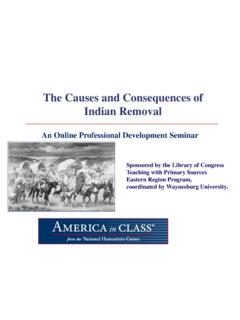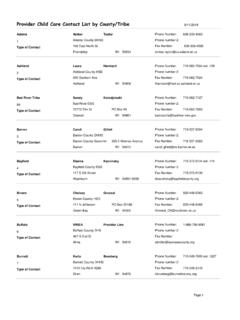Transcription of THE SCIENCE OF SUBJECTIVE WELL-BEING - UMRI
1 THE SCIENCE . OF SUBJECTIVE WELL-BEING . The SCIENCE of SUBJECTIVE WELL-BEING EDITED BY. MICHAEL EID. RANDY J. LARSEN. THE GUILFORD PRESS. New York London 2008 The Guilford Press A Division of Guilford Publications, Inc. 72 Spring Street, New York, NY 10012. All rights reserved No part of this book may be reproduced, translated, stored in a retrieval system, or transmitted, in any form or by any means, electronic, mechanical, photocopying, microfilming, recording, or otherwise, without written permission from the Publisher. Printed in the United States of America This book is printed on acid-free paper.
2 Last digit is print number: 9 8 7 6 5 4 3 2 1. Library of Congress Cataloging-in-Publication Data The SCIENCE of SUBJECTIVE WELL-BEING / edited by Michael Eid and Randy J. Larsen. p. cm. Includes bibliographical references and index. ISBN-13: 978-1-59385-581-9 (hardcover : alk. paper). ISBN-10: 1-59385-581-8 (hardcover : alk. paper). 1. Happiness. 2. WELL-BEING . I. Eid, Michael. II. Larsen, Randy J. 2008. 158 dc22. 2007027502. About the Editors Michael Eid, DSc, is Professor of Psychology at the Free University of Berlin, Germany. Dr. Eid is currently Editor of Methodology European Journal of Research Methods for the Behavioral and Social Sciences and Associate Editor of the Journal of Positive Psychology.
3 His main research interests are SUBJECTIVE WELL-BEING , mood regulation, multimethod measurement, and longitudinal data analysis. Randy J. Larsen, PhD, is the William R. Stuckenberg Professor of Human Values and Moral Development and Chair of the Psychology Department at Washington University in St. Louis. He conducts research on emotion, primarily in terms of differences between people, and studies such topics as SUBJECTIVE well - being, mood variability, jealousy, attraction, depression, and strategies for the self-management of self-esteem and emotion.
4 Dr. Larsen is an elected member of the Society of Multivariate Experimental Psychology and is listed as one of the highly cited psychologists by the Institute for Scientific Information. v Contributors Robert M. Biswas-Diener, MS, Department of Psychology, Portland State University, Portland, Oregon David M. Buss, PhD, Department of Psychology, University of Texas at Austin, Austin, Texas John T. Cacioppo, PhD, Department of Psychology, University of Chicago, Chicago, Illinois Rebecca J. Compton, PhD, Department of Psychology, Haverford College, Haverford, Pennsylvania Carol Diener, PhD, JD, Department of Psychology, University of Illinois at Urbana Champaign, Champaign, Illinois Ed Diener, PhD, Department of Psychology, University of Illinois at Urbana Champaign, Champaign, Illinois Marissa L.
5 Diener, PhD, Department of Family and Consumer Studies, University of Utah, Salt Lake City, Utah Mary Beth Diener McGavran, PhD, Department of Psychology, University of Kentucky, Lexington, Kentucky Michael Eid, DSc, Department of Psychology, Free University of Berlin, Berlin, Germany Robert A. Emmons, PhD, Department of Psychology, University of California at Davis, Davis, California vi Contributors vii Barbara L. Fredrickson, PhD, Department of Psychology, University of North Carolina at chapel Hill, chapel Hill, North Carolina Frank Fujita, PhD, Department of Psychology, Indiana University South Bend, South Bend, Indiana Louise C.
6 Hawkley, PhD, Department of Psychology, University of Chicago, Chicago, Illinois Daniel M. Haybron, PhD, Department of Philosophy, Saint Louis University, St. Louis, Missouri E. Scott Huebner, PhD, Department of Psychology, University of South Carolina at Columbia, Columbia, South Carolina M. E. Hughes, PhD, Center for the Study of Aging and Human Development, Duke University Medical Center, Durham, North Carolina Sarah E. Hill, PhD, Department of Psychology, California State University . Fullerton, Fullerton, California Timothy A. Judge, PhD, Department of Management, University of Florida, Gainesville, Florida Ariel Kalil, PhD, Harris School of Public Policy Studies, University of Chicago, Chicago, Illinois Laura A.
7 King, PhD, Department of Psychological Sciences, University of Missouri, Columbia, Missouri Ryan Klinger, MSM, Department of Management, University of Florida, Gainesville, Florida Jayoung Koo, MA, Department of Psychology, Yonsei University, Seoul, South Korea Minkyung Koo, MA, Department of Psychology, University of Virginia, Charlottesville, Virginia Randy J. Larsen, PhD, Department of Psychology, Washington University in St. Louis, St. Louis, Missouri Richard E. Lucas, PhD, Department of Psychology, Michigan State University, East Lansing, Michigan Darrin M.
8 McMahon, PhD, Department of History, Florida State University, Tallahassee, Florida David G. Myers, PhD, Department of Psychology, Hope College, Holland, Michigan Shigehiro Oishi, PhD, Department of Psychology, University of Virginia, Charlottesville, Virginia viii Contributors William Pavot, PhD, Department of Social SCIENCE , Southwest Minnesota State University, Marshall, Minnesota Zvjezdana Prizmic, PhD, Department of Psychology, Washington University in St. Louis, St. Louis, Missouri Michael D. Robinson, PhD, Department of Psychology, North Dakota State University, Fargo, North Dakota Ulrich Schimmack, PhD, Department of Psychology, University of Toronto at Mississauga, Mississauga, Ontario, Canada Eunkook M.
9 Suh, PhD, Department of Psychology, Yonsei University, Seoul, South Korea Ronald A. Thisted, PhD, Departments of Health Studies and Statistics, University of Chicago, Chicago, Illinois Ruut Veenhoven, PhD, Faculty of Social SCIENCE , Erasmus University of Rotterdam, Rotterdam, The Netherlands Linda Waite, PhD, Department of Sociology, University of Chicago, Chicago, Illinois Preface What is happiness? Does happiness have distinct components, or is it a singular global state? How can it be measured? What causes happiness? What are the con- sequences of happiness?
10 What predicts happiness? Are there national or cultural differences in happiness? How might people become happier, if they wanted to? Although answers to questions such as these are fundamental to our understand- ing of human functioning and flourishing, it has only been over the last 25 years that we have seen an increasing amount of empirical research in the social and behavioral sciences on the topic of happiness. This interest has crystallized in the foundation of a new discipline of psychology called positive psychology. The development of positive psychology has its roots in the prescient and ground- breaking work of Ed Diener, who has devoted his scientific life over the last 25.










